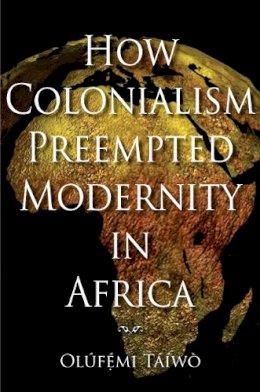Olúfémi Táíwò is Professor of Philosophy and Global African Studies and Director of the Global African Studies Program at Seattle University. He is author of Legal Naturalism: A Marxist Theory of Law.
"The seven chapters in this book are based on a series of original essays and their various revisions, presented at numerous conferences in the US and abroad over an extended period of time (1992-2003), with updated revisions and footnotes through 2008. The basic focus is on 'the nature of the relations between Africa and modernity' with emphasis on Commonwealth Africa, particularly Nigeria, Kenya, and Tanzania. Táíwò (philosophy and global African studies, Seattle Univ.) argues that 19th-century colonialism hampered the development of African modernization and notes various contributions Africans made to the process historically that were neglected or discounted. The major topics include a profile of colonialism, 19th-century African modernists, the philosophy of British colonialism, the legal legacy, two examples of modernity, and the process of globalization. The author provides extensive footnotes, a selective but useful bibliography, and an index. The almost exclusive focus on African topics and issues offers a new and unusual interpretation of the precolonial era. Summing Up: Recommended. Upper-division undergraduate, graduate, and research collections. — Choice"—M. E. Doro, emerita, Connecticut College, October 2010 "This is undoubtebly a stimulating book ... that deserves to be widely read. Its engagingly polemical style and provocative conclusions will no doubt enliven many a future seminar discussions.April 2011"—American Historical Review "This courageous book, written with verve, clarity and an impressive command of social theory, is essentially a work of 'philosophical history', a morally engaged analysis of Africa's contemporary predicament in the light of a particular, selective reading of its history. Vol. 81.3, 2011"—Africa "This book is concerned with nothing less than the future of Africa."—Souleymane Bachir Diagne, Columbia University

